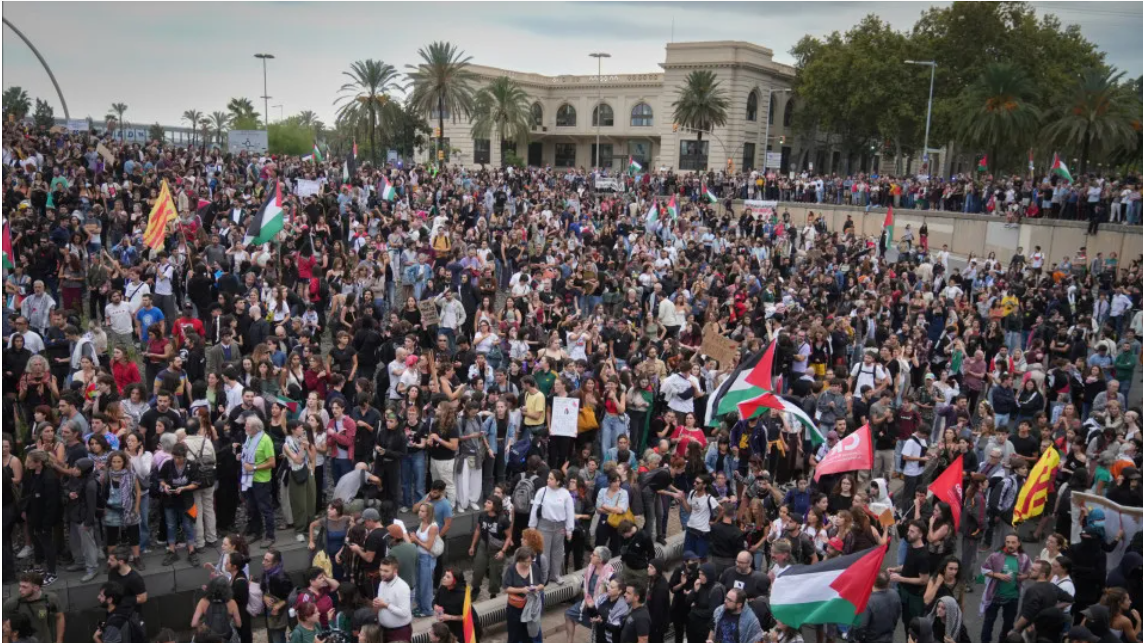“We will work to ban all further imports of Russian gas, both by pipeline and LNG [liquefied natural gas], by the end of 2027 at the latest and, in addition, we will tighten controls on Russia’s shadow fleet. The era of Russian fossil fuels in Europe is coming to an end,” emphasised Ursula von der Leyen.
In a debate on the war in Ukraine caused by the Russian invasion at the plenary session of the European Parliament in the French city of Strasbourg, the leader of the EU executive said it was “a question of political will”.
“Last year, our energy imports from Russia recovered slightly. That is why we need a final push to phase out Russian fossil fuels,” she emphasised.
On the subject of the war, Ursula von der Leyen called for a “just and lasting peace” because “a bad agreement could encourage Putin to come back for more and that would be a recipe for more instability and insecurity”, particularly as we mark the 80th anniversary of the end of the Second World War in Europe.
The position comes a day after the European Commission proposed that EU countries stop importing gas from Russia by the end of 2027, ending new contracts and immediate purchases this year, in order to stop being dependent on Moscow.
At issue is an EU roadmap for phasing out Russian energy imports, in which the institution proposes ceasing all remaining imports of Russian gas by the end of 2027.
The roadmap also foresees a gradual withdrawal of Russian oil and nuclear energy from EU markets, as well as a commitment to LNG, whereas Norway and the United States are currently the main suppliers to the EU.
In 2024, the EU imported more than 100 billion cubic metres of LNG and, from this year onwards, world supply is expected to increase rapidly, while demand for gas is expected to fall.
Figures from the institution show that gas imports (both LNG and pipeline) from Russia to the EU fell from 45 per cent in 2021 to 19 per cent in 2024, with projections pointing to a further drop to 13 per cent in 2025 due to the end of transit through Ukraine.
However, last year the EU still imported 52 billion cubic metres of Russian gas (32 billion cubic metres through pipelines and 20 billion cubic metres through LNG), as well as 13 million tonnes of crude oil and more than 2,800 tonnes of uranium equivalent enriched or in the form of fuel.
Due to the war in Ukraine, the Union has moved ahead with sanctions such as banning imports of Russian coal into the EU and the reloading of cargoes at European ports carrying LNG from Russia.
This has meant that oil imports from Russia have also fallen, from 27 per cent at the start of 2022 to 3 per cent today.
As far as the nuclear sector is concerned, companies that still use Russian reactors have opted for alternative suppliers.










